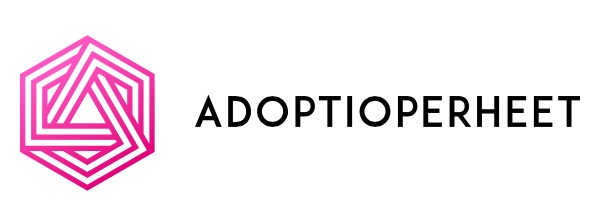FOR THE ADOPTED
According to various estimates, 30,000–120,000 international and domestic adoptees live in Finland.
People who have the same experiences, peers, can be irreplaceable reflection partners when the adoptee deals with the adoption from their own perspective.
“The importance of peer–to–peer activities has been extremely important to me. That I am not alone with these things and feelings. Through peer activities, I have had wonderful people in my life, and I am grateful for each and every one of them.”
– Adopted adult
The adopted person’s experiences and thoughts about identity are very individual. Interest in one’s own background or in adoption may be activated during life stages, for example when the adopted person starts a relationship, it ends, or the adopted person starts his own family. Often, the adoptee’s background can also include missing pieces that may never be answered.
In the past decades, adoption has been associated with a strong culture of secrecy, and this has been seen especially in domestic adoptions, where information about the adoption background could only be revealed to the adopted person, for example, in the birth certificate. Based on current knowledge, prospective parents are encouraged to talk openly with the child about adoption right from the beginning, according to the age level, already in the counseling phase. In this case, the adopted person has better conditions to build a complete identity and own life story. Fortunately, adoption is being talked about increasingly openly these days, both among families and for the adopted people themselves.
Peer activities (links to finnish site) can offer the opportunity to deal with both painful and other issues related to adoption, and through this you can notice that often many others have been thinking about the same things
Peer activities and support
Background of the adoptee
We all have a need to build a story about our lives. For an adopted person, some of the pieces of thestory may be lost. Growing into one’s own self is a life–long process, but for an adopted person, certain life stages, such as starting a dating relationship, having a child of one’s own, divorce or the death of an adoptive parent, may reactivate thinking about the meaning of adoption from a new perspective.
Some are reluctant to find out their roots because they think that the search is a sign of disloyalty towards the adoptive family and insults the adoptive parents. Some hesitate because they know that there is a difficult life situation in the background, based on which the decision to give up for adoption has been made. Questions can also arise from uncertainty, fear of being rejected, and the search process and what one might encounter during that.
In the story “Kaikki tunteet sallittu” (links to finnish site) (All feelings allowed), (published in our magazine 1/2022) we talk about the conflicting and even difficult feelings of an adopted person.
The starting points for investigation work can also be quite different – some adoptees have information about names and towns; others only know where they were found.
For some, simply searching for information is a way to deal with the matter. Some get the information they need about the circumstances that led to the adoption, as well as about biological relatives. According to the Adoption Act, the adopted person has the right to receive information and support about the adoption process, regardless of their age. The adopted person has the right, for example, to see all the documentation regarding the adoption.
“The Juuret – opas” (Roots guide) (pdf opens to a new window) we produced is written to support the various parties involved in adoption and those who encounter them in their profession. Above all, we hope it will serve adoptees who are thinking about finding out about their origins
Genealogical research and DNA seminars
In Finland, the conditions for genealogical research are exceptionally good, but the entries made in the church records related to the adoption and the documentation of the situations by social workers vary widely in their accuracy and content.
You can read more about Genealogy, e.g., from the website of the genealogical society.
In October 2018, we organized two seminars on the latest trends in genetics research
• DNA seminar 13.10. Helsinki PART 1 (YouTube)
• DNA seminar 13.10. Helsinki PART 2 (YouTube)
More information on our Juuret page. (links to finnish site)
Social media and biological family
Modern times also offer opportunities in the form of social media, but there can be several people with the same name, and surprising contacts can sometimes cause bewilderment or even resistance.
Some of the adopted people decide to find out about their origins. Some manage to find out their stories, and find their birth parents, sometimes also biological siblings. Some of the adopted meet their biological parents and/or other biological relatives. Meetings usually involve a lot of different emotions – excitement, fear of being rejected, fear of being judged, but also expectations of finding a connection, getting explanations, feelings of joy and enthusiasm.
Yle’s article about finding relatives of an adopted person on social media “Venäjältä Suomeen kuusivuotiaana adoptoitu Maria löysi sukulaisiaan somesta” (Maria, who was adopted from Russia to Finland at the age of six, found her relatives on social media) (2019).
Even if the meeting takes place, it does not always meet expectations. It doesn’t necessarily lead to an immediate hug or constant contact. Sometimes the meeting is a relief – often the topic has been on the mind of everyone involved in the adoption for their whole lives. A large part of the adoptees state that the meeting was meaningful in its own way.
Other adoptees understand the things, thoughts and feelings you are going through. In peer groups, you can share your experiences, reflections and tell your story to the extent you want. You can also get practical tips from others to find out about your background.
Edited by Adoption (Yhteishyvä’s online article about the experiences of two adoptees, internationally and domestically, 2014)
Adoptees’ writings and research information
Adoptees’ interviews and writings from the adoptee’s point of view
• Heta found a friend through voluntary work (Adoptioperheet–lehti 1/22 Tunne)
• This is my path (Adoptioperheet magazine 4/21 The Adopted)
• Don’t make assumptions about what adoption means to me (Adoptioperheet magazine 2/2021
Encounters)
• Adopted Jaana only found her sister as an adult (ET 2020)
• Mikko, adopted as a child: Mother is the one who loves (Kodin Kuvalehti, 2016)
• Adopted as an adult tells what mother and father mean (HS 18.6.2015, readable only to subscribers)
• The adoption story of three generations (TV show Human factor, 2015)
• Edited by adoption – two adult adoptees tell (Yhteishyvä, 21.8.2014)
• “Why are you brown? – An adult adoptee talks about his family with children (Lapsen maila
17.04.2014)
• THE VOICE OF THE ADOPTED – conversations from the adoptee’s point of view, a series of podcasts
(all links to finnish sites)
Final theses and studies from the adoptee’s point of view
• Finns internationally adopted – Belonging to the family and the nation (PDF opens in a new window), Heidi Ruohio, Youth Research Network’s online publication (2017)
• From encrypted to open, domestic adoption in its historical context, Anu Övermark’s master’s degree (2013)
• At home between two worlds – the identity of an internationally adopted young person (PDF), Maarit Koskinen, Master of Education, (2008)
• History of Finnish adoption (PDF) (published in the magazine 3/2004)
Other associations of adopted adults
• VIA – Vuxuna Internationellt Adopterade i Finland rf (in Swedish)
• Adult Adopted Association (operations ended in 2018 and merged with Adoptioperheet ry)
• Adoptorade Finland rf (ceased its operations at the end of 2017 and merged with Adoptioperheet ry)





